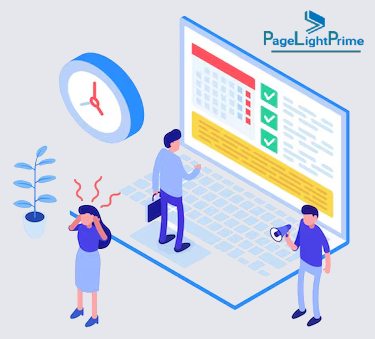Challenges of Managing Payroll in a Law Firm
Managing payroll in a law firm is no small feat. Unlike many other industries, law firms face unique challenges that require tailored solutions to handle payroll processes effectively. From dealing with complex pay structures to meeting stringent compliance requirements, law firm payroll management is a time-intensive and complicated task. In this blog, we’ll explore the key challenges and offer insights into how firms can overcome them by leveraging specialized software and outsourcing solutions.
Written by Knowledge Team, posted on Sep 09, 2024

The Unique Needs of Law Firm Payroll
Law firms operate in a highly specialized environment, which means their payroll needs are equally unique. Whether it’s managing attorney payroll, handling diverse employee benefits, or ensuring compliance with legal payroll regulations, the financial management of a law firm is distinct from other industries.
Law firms typically deal with different pay frequencies for various staff, including salaried attorneys and hourly employees. This complexity is compounded by the need to track billable hours, manage contractor payments, and handle performance-based bonuses. Additionally, legal payroll systems must be able to process reimbursements for expenses such as travel or court filing fees. The ability to manage multiple billing rates further complicates payroll processing, making the need for an adaptable and comprehensive payroll system essential.
Common Payroll Challenges Faced by Law Firms
1
Complex Pay Structures
One of the main payroll challenges in law firms is the complex pay structure. Attorneys, paralegals, administrative staff, and contract workers may have different pay frequencies and structures. For example:
- Salaried attorneys may be paid semi-monthly.
- Hourly staff might receive weekly payments.
- Contractors and freelancers need timely payment for specific projects.
Firms often need to track various forms of compensation, such as bonuses, stipends, and expense reimbursements. Managing these different pay elements can be tedious and error-prone without specialized legal payroll software that automates these processes.

2
Time-Intensive Process
Managing payroll for a law firm requires a significant amount of time and attention, especially when factoring in time tracking for billable and non-billable hours. Law firm leaders often need to review revenue, budgets, and expenses, which takes away valuable time from client work.
Moreover, tasks such as generating invoices, following up on collections, and ensuring all billable hours are captured accurately make payroll a highly time-consuming process. Firms can benefit from payroll software that integrates time tracking and billing systems, allowing for more seamless operations.

3
Employee Retention and Morale
In the legal industry, employee retention is a challenge due to high workloads and stressful billable hour requirements. Burnout is common, especially among junior attorneys. To improve retention, law firms need to offer competitive employee benefits and foster a work-life balance.
Integrating self-service payroll features can help improve employee satisfaction by providing transparency in pay and benefits. Employees can easily access their payroll details, track paid time off (PTO), and manage their benefits, all of which help reduce administrative burdens and increase morale.

Compliance Issues in Law Firm Payroll
Law firms must adhere to strict payroll compliance requirements, including tax withholding and employee classification rules. Misclassifying an employee as an independent contractor or improperly managing trust accounts can lead to costly legal ramifications. Here are some of the key payroll compliance challenges law firms face:
Tax Compliance
Accurate tax calculation and withholding, including Social Security limits and the Additional Medicare Tax, is crucial.
Employee Classification
It’s essential to properly classify employees versus independent contractors to avoid penalties and legal issues.
Trust Accounting and IOLTA Accounts
Firms must maintain meticulous trust accounting records to ensure that Interest on Lawyers Trust Accounts (IOLTA) are handled properly, in line with state regulations.
Failure to meet these legal and regulatory obligations can lead to fines and damage to the firm’s reputation.

Time Tracking and Billing Challenges
Accurately tracking billable hours is one of the most significant challenges for law firms. In addition to billable time, non-billable activities such as administrative work, professional development, and client intake must also be tracked and managed.
Time tracking for law firms is often intertwined with payroll, as employees may be compensated based on the number of hours they bill. Having a robust time tracking system that integrates with payroll can significantly streamline operations, reduce errors, and improve overall efficiency. Automated time tracking tools that sync with payroll systems can help ensure that all hours are accounted for and billed correctly.

Employee Benefits Administration
Law firms also face challenges when it comes to managing employee benefits. Competitive benefits packages that include health insurance, retirement contributions, and paid time off are essential to attracting and retaining top talent.
Administering these benefits manually is cumbersome, especially when dealing with different eligibility requirements and contribution levels for various employees. The solution lies in using payroll software that can seamlessly manage and automate benefits administration, making it easier to ensure employees receive their entitlements.

The Benefits of Payroll Outsourcing
Given the complexity and time-intensive nature of managing payroll in a law firm, outsourcing payroll can be a smart move for many firms. Law firm payroll outsourcing provides several advantages:
Cost Savings
Outsourcing can reduce the need for in-house payroll staff and decrease the risk of costly payroll errors.
Increased Accuracy
Professional payroll service providers ensure that payroll is processed accurately and in compliance with legal requirements.
Time Efficiency
Outsourcing frees up law firm leaders to focus on client work rather than administrative tasks like payroll processing.
By outsourcing payroll, law firms can streamline their operations, reduce risk, and ensure that employees are paid accurately and on time.

Streamline Payroll with PageLightPrime
At the heart of overcoming payroll challenges in law firms is having the right software. PageLightPrime is a comprehensive legal accounting solution designed specifically for law firms. It simplifies payroll management by functioning as:
Legal Accounting Software
Provides robust features for managing financial records and generating detailed reports for various payroll needs.
Lawyer Time Billing Software
Tracks billable hours and integrates seamlessly with payroll to ensure accurate compensation based on time spent on client work.
Attorney Expense Tracking Software
Manages and processes reimbursements for expenses such as travel, court fees, and other client-related costs.
Legal Billing Software
Generates invoices, handles fee splits, and tracks payments, ensuring all billing aspects are covered efficiently.

By using PageLightPrime, law firms can automate much of their payroll processing, ensuring accuracy and efficiency. The software integrates seamlessly with your firm’s practice management system and provides detailed financial insights through its robust reporting features. From tracking billable hours to preparing tax documents, PageLightPrime enables firms to run their operations smoothly, freeing up more time to focus on clients.
Case Studies: Streamlining Payroll at family Law Firm
The Challenge
A mid-sized law firm was struggling with manual payroll processes that were time-consuming and error prone. With a growing team of attorneys, paralegals, and administrative staff, managing payroll had become a significant burden on their operations. They were looking for a solution to automate their payroll and improve efficiency.
The Solution
The law office implemented PageLightPrime, a comprehensive legal accounting software designed specifically for law firms. PageLightPrime’s features included:
- Automated Payroll Processing: The software calculated employee pay, deductions, and withholdings automatically, reducing the risk of errors.
- Time Tracking Integration: PageLightPrime seamlessly integrated with the firm’s attorney time tracking system, ensuring accurate billing and payroll calculations based on billable hours.
- Employee Self-Service: Employees could access their pay stubs, W-2s, and other payroll information online, reducing administrative tasks for HR.
- Compliance Management: The software helped the firm stay compliant with federal and state payroll regulations, minimizing the risk of penalties.

The Results
Improved Efficiency: By automating payroll processes, the law firm partners freed up their staff to focus on more strategic tasks.
- Increased Accuracy: The software’s automated calculations reduced the likelihood of payroll errors, saving the firm time and money.
- Enhanced Employee Satisfaction: Employees appreciated the convenience of accessing their payroll information online and having a more transparent system.
- Better Financial Management: PageLightPrime provided the firm with real-time insights into their payroll costs, helping them make informed financial decisions.
In conclusion, the law firm successfully overcame their payroll challenges by implementing PageLightPrime. The software’s automation, integration capabilities, and compliance features enabled the firm to streamline their operations, improve accuracy, and enhance employee satisfaction.

Conclusion
“
Managing payroll in a law firm is undoubtedly complex, involving everything from tracking billable hours to managing employee benefits and ensuring compliance with payroll regulations. While these challenges can be daunting, law firms can mitigate them by implementing specialized legal payroll software like PageLightPrime and considering payroll outsourcing. By doing so, they can simplify payroll management, stay compliant with legal standards, and ultimately devote more time to serving their clients.
Implementing the right payroll management solutions allows firms to tackle the unique payroll challenges in law firms efficiently, leading to smoother operations and more satisfied employees.
“
